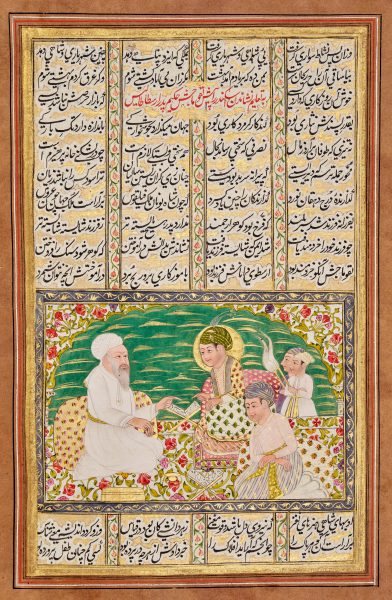
Introduction
The Muslim world is entirely disconnected from its own historical past, and today’s Muslims are totally ignorant of one another; Islamic Ages’ History, Sciences, Intuition, Spirituality, Mysticism, Literature, Wisdom, Philosophy, Arts, Architecture, Cosmology and World Conceptualization are absolutely unknown to school children of Muslim countries and definitely absent from their manuals.
Across all the countries of the Islamic world there is not one all-encompassing encyclopedia to duly cover and properly present the contents of the aforementioned Historical Islamic Heritage. Publishing houses, newspapers, magazines, reviews, radio programs, TV channels, and Internet portals are fully devoid of the subjects that constitute the essence of the Cultural and Spiritual Identity of all Muslims.
Historical, literary and philosophical texts of the Islamic Ages’ greatest historians, philosophers, authors, scholars and poets are either difficult to find or not translated in other languages so that Muslims from all over the world can access them. No driving force makes it necessary for Muslims to delve into their own common heritage (that stretches from the Atlantic to the Pacific and from Siberia to Mozambique). Yet, this heritage is the only authentic form of Islamic Civilization that is saved down to our days – in striking contradiction with today’s ignorant sheikhs, idiotic imams, uneducated muftis, pseudo-theological schools, and their pseudo-doctrines and nonsensical, mostly heretic dogmas.
Instead of this,
a) fake theological dogmas (such as Political Islam or Wahhabism),
b) heretic theological systems (like those of Ahmed ibn Hanbal, Ahmed ibn Taimiyya and Muhammad Abdelwahhab),
c) grave and erroneous ideologization of historical past (by those who are totally ignorant of that past),
d) catastrophic politicization of misunderstood parts of the Historical Islamic Heritage (by those who aberrantly represent that heritage), and
e) locally adopted Western, racist, colonial, Orientalist premeditated distortion of World History (therefore involving extensive falsification of the History of Islamic Civilization and nefarious concealment of the overwhelming impact of the Ancient Oriental Civilizations on the formation of both, the Western and the Islamic, worlds) have condemned Muslims in Asia, Africa and Europe to identity loss, obscurantism, ignorance, misery and abject destitution.
———————————————————————–
Muslims all over the world in their cultural festivities, spiritual exercises, religious feasts and traditional way of life
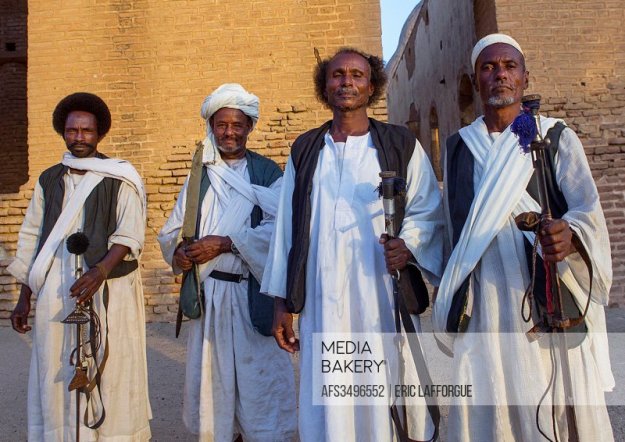
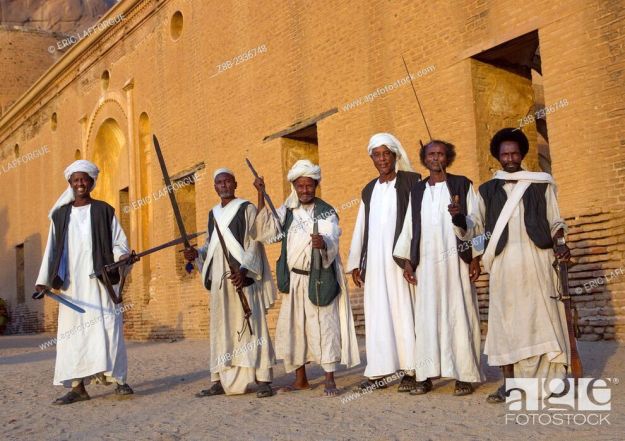
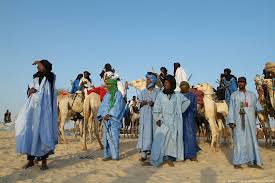
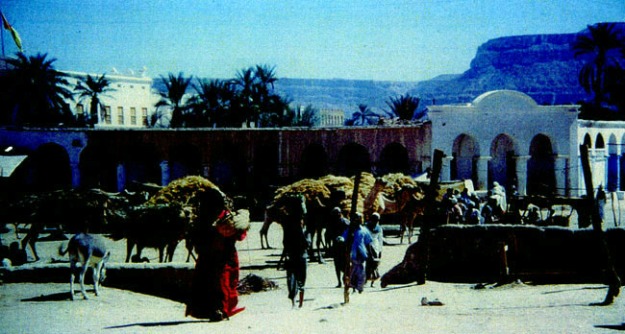
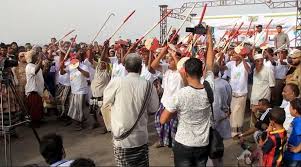
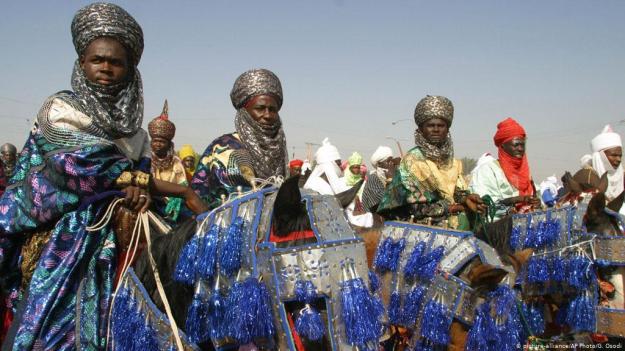
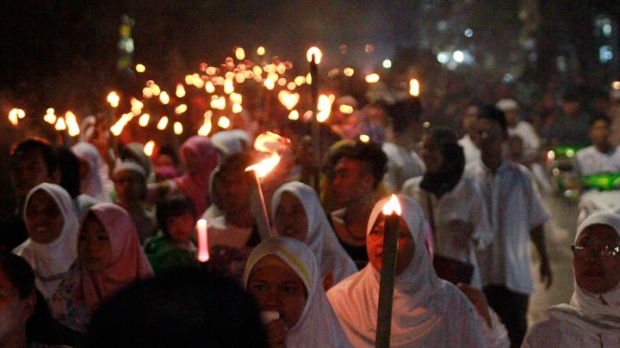
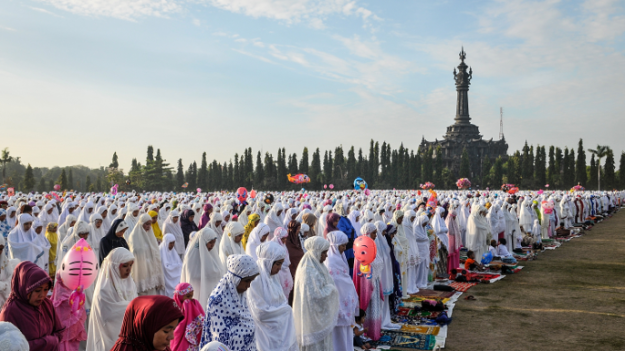
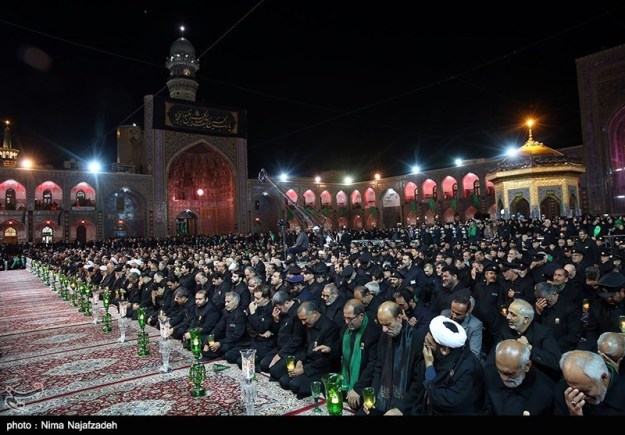
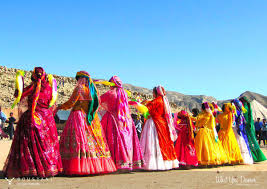
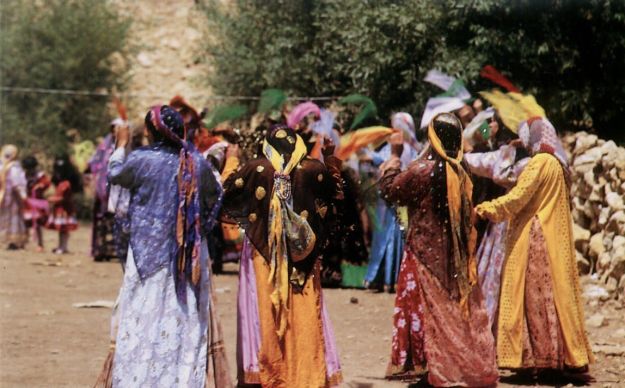
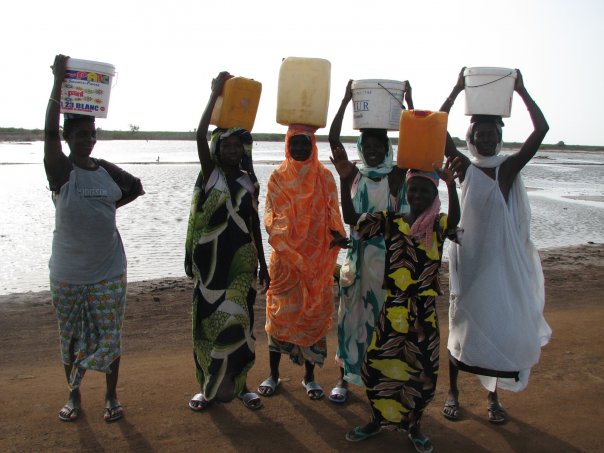
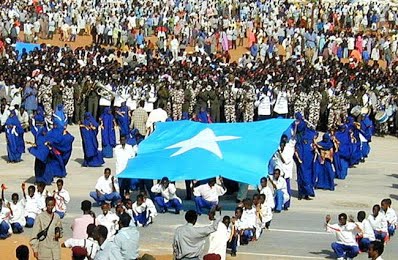
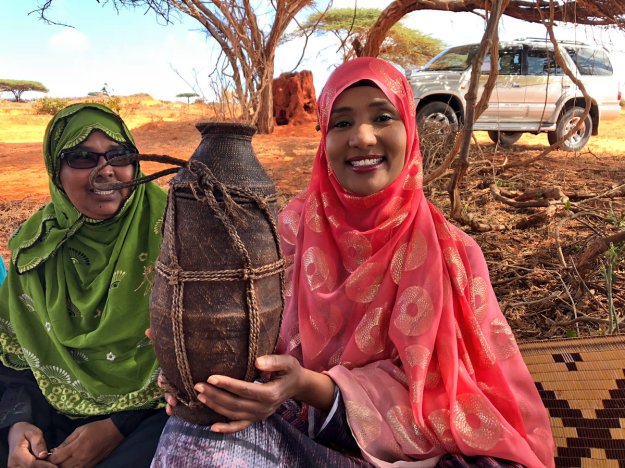
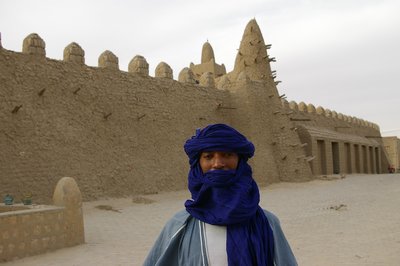
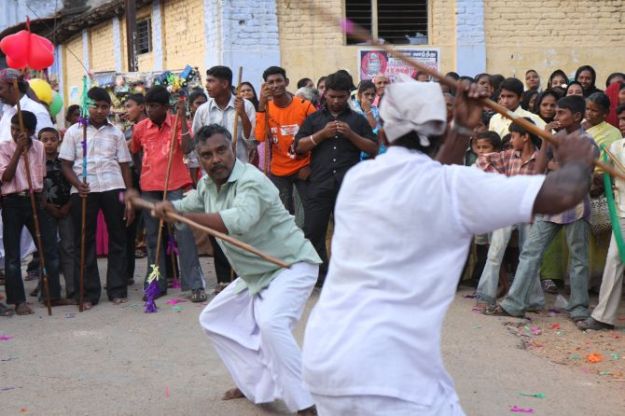
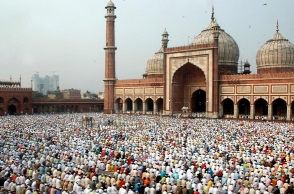
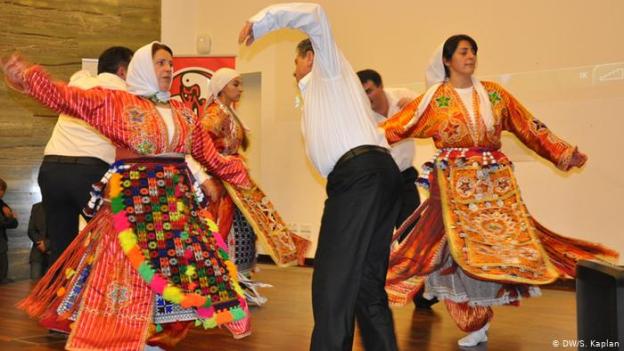
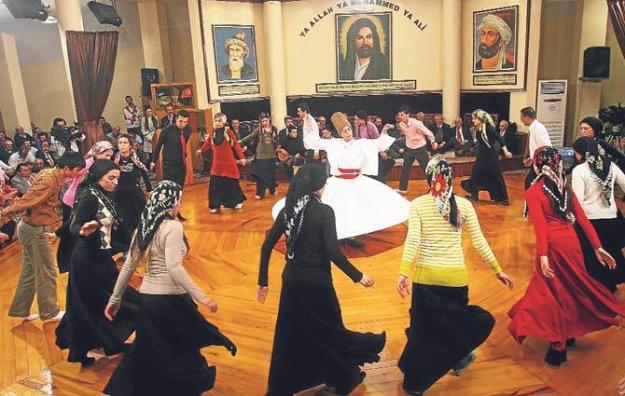
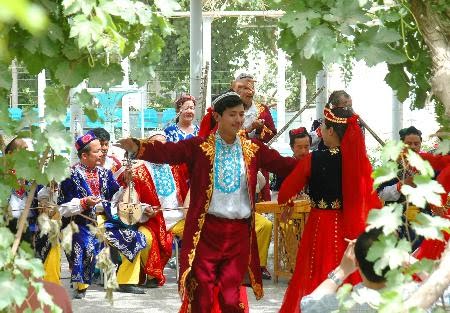
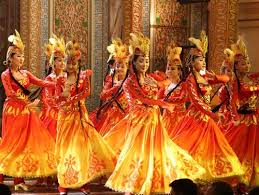
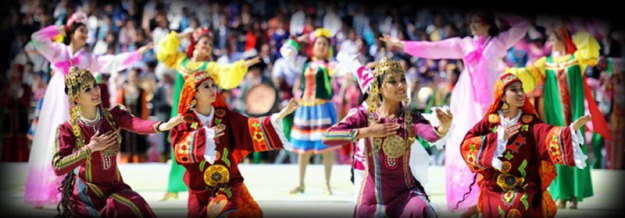
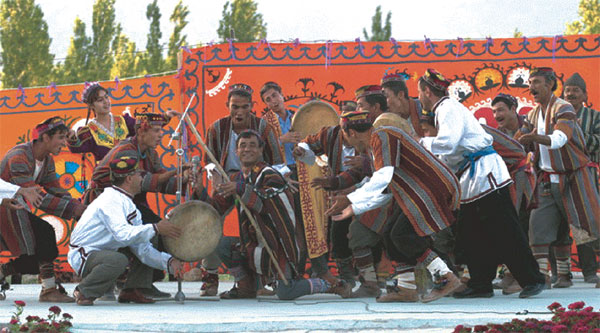
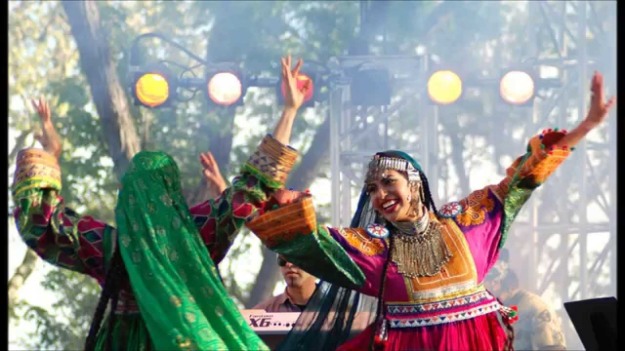
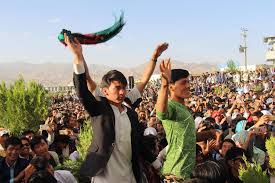
Pictures from among Muslims in Senegal, Hausa in Nigeria, Tuareg in Mali and Algeria, Hadhramaut, Beja in Sudan, Indonesia, Qashqai in Iran, Somalia, Ogaden, Tamil of the Dekkan (occupied by India), Turkey, Uzbekistan, Iran, Uighur (Eastern Turkestan), Hazara of Afghanistan, and Circassians (Adyghe in the Russian Caucasus)
—————————————————————————
The only convicted criminal for the above described situation is the Colonial West in its totality: England, France, Canada, Australia, New Zealand, Holland, Belgium, USA, Spain, Portugal and their dependencies. By means of military, economic, political, educational, academic, artistic, intellectual, cultural and religious interference, the aforementioned tyrannical, barbarian and inhuman states have done their best to incessantly enforce the above noted conditions that help only prolong mutual ignorance, educational darkness, identitarian crisis, spiritual-religious sterilization, economic withering, political discord and military conflict among all Muslim nations.
Irrespective of the nonsensical pretensions of the racist, colonial, criminal academies and universities of the Western countries, there are no Western universal values and consequently neither Asia nor Africa need any of them. The Muslims have had their own values that date back to the first millennium CE, being the depository of the Ancient Oriental universal values that had been extensively spelled out in Mesopotamia, Egypt, Anatolia, Iran, Central Asia, China and South Asia long before the marginal realms of Greece and Rome came to surface. The same is also valid for all Asiatics and Africans who are adepts of other religions, belonging to other civilizations.
In fact, the so-called Western universal values are not Western, simply because the West does not exist; the Modern Western world, as the foremost expression of cruelty, hatred, tyranny, barbarism and monstrosity, is only a vicious distortion of the Orient.
Today’s West is the world’s Sick Man, who pretends to be Healthy whereas at the same time he accuses the Healthy Man as Sick!
Representing the most excruciating form of putrefaction across World History, the paranoid Western pseudo-academia and bogus-intellectuals designate as “universal” their mental, intellectual and cultural contamination, thus intentionally infecting the rest of the world.
The so-called Western values are merely the parameters of their morbidness, the elements of their lawlessness, the dimensions of their evilness, and the epitome of their abhorrence of the “Other” – as made evident
a) in the massacres of Aztecs, Incas and other indigenous nations,
b) in the outrage of the Jesuit reductions,
c) in the criminality of the Scramble for Africa,
d) in the malignancy of the Opium Wars, and
e) in the perfidy and savagery by which the English and the French demolished the Ottoman, Iranian, Mughal and Chinese Empires that are now being reconstituted.
To reclaim their Historical Islamic Heritage, Muslims all over the world must reconnect with one another, thus totally disregarding, disrespecting and rejecting all things Western. The present paper is a suggestion as to just how Muslims can be comprehensively reconnected with one another and in the process eliminate all negative elements and parameters of their societies which are due to Western infiltration, propaganda and dictatorial imposition.
The present proposal was composed in early 2012, after several discussions that I had in Abu Dhabi (where I was living at the time) with friends originating from various Asiatic, African and European Muslim countries. It consists in the establishment of an international NGO or Foundation, which will undertake the enormous task of bridging the gap among Muslims,
a) rewriting historical, literary, geographical and other manuals,
b) making known the achievements of a Muslim nation to another Muslim nation and vice versa,
c) promoting vast bilateral exchanges among all Muslim countries,
d) materializing bilingual editions of reciprocally unknown authors,
e) organizing seminars and other activities to bring Muslims from all countries close to one another, and
f) popularizing the historical heritage of one Muslim nation among another – and vice versa.
The proposal is briefly outlined (less than 1500 words) and several sections only indicated; it serves for further brainstorming and discussion among educated and cultured Muslims, who have not fallen victims of Western propaganda, materialism, evolutionism, and consumerism. The present introduction was written on 20th July 2020 in Luxor, Thebes of Upper Egypt.
——————————————–
The true, historical Islam remains unknown to today’s Muslims because of their criminal governments that are exclusively made of stooges of the Western colonial gangsters; the following pictures offer only a minimal idea of what today’s Muslims are unaware, although they are the only heirs.
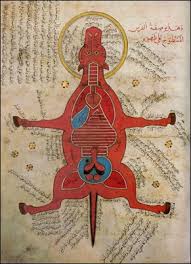
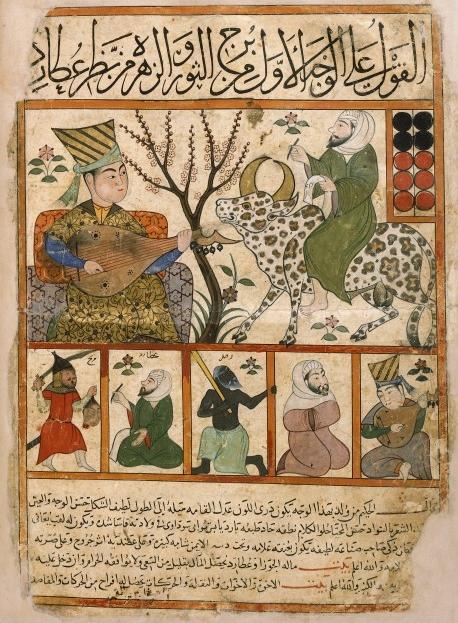
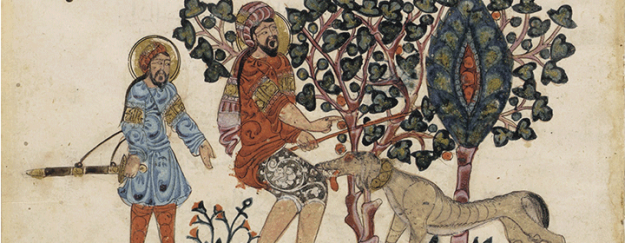
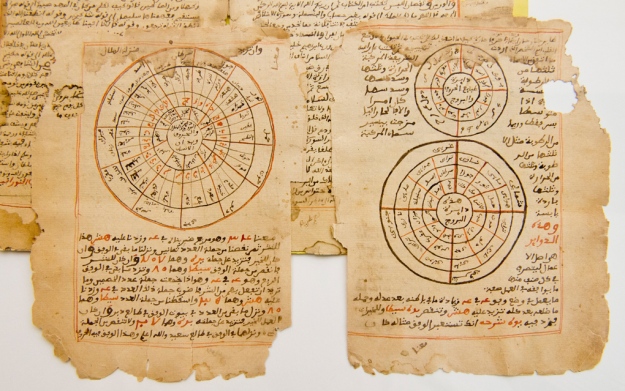
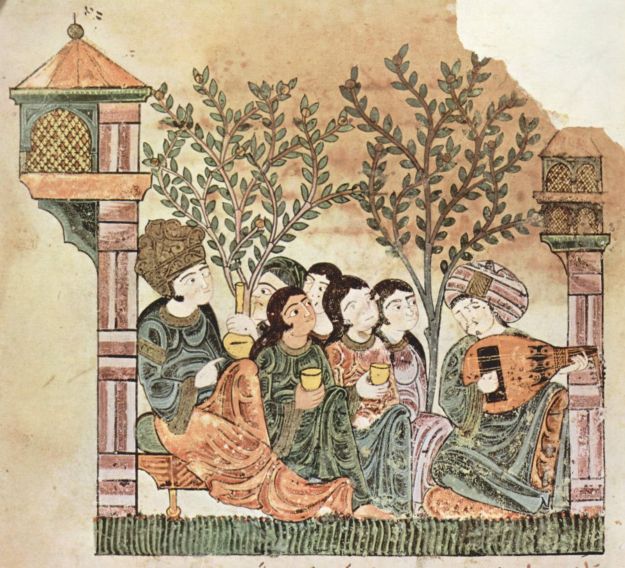
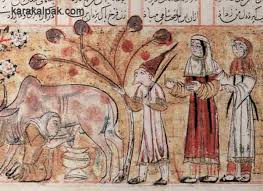
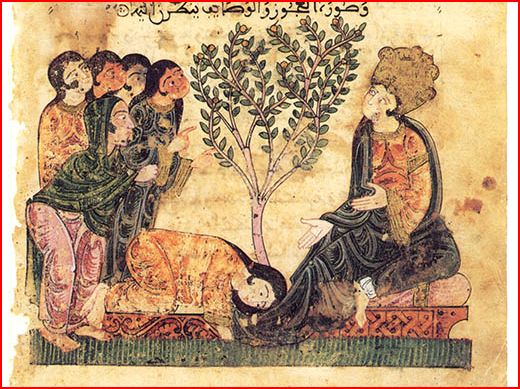
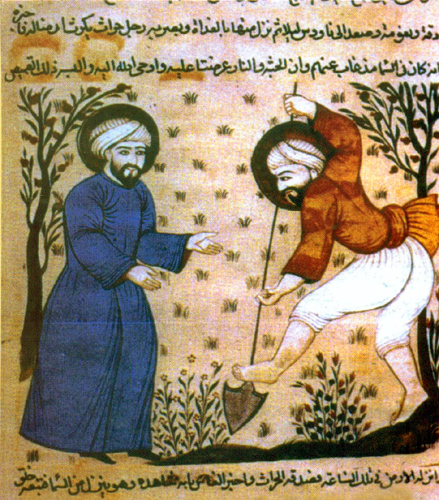
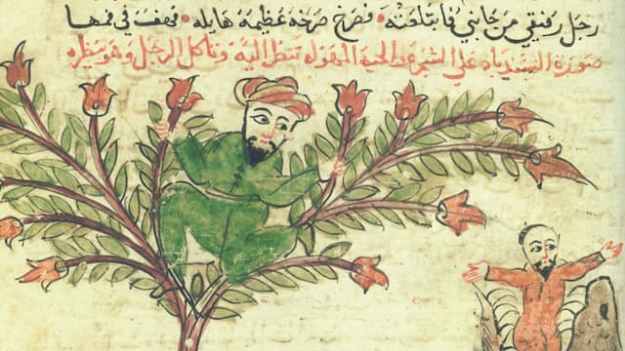
========================================
ISLAMIC FOUNDATION FOR
EDUCATIONAL, ACADEMIC, INTELLECTUAL, ARTISTIC AND CULTURAL
INTER-EXCHANGE ( IFIE )
General Scope of Languages
International Languages
Chinese, Russian, Spanish, Portuguese, German, Italian, English, French
1. Major working languages
Asia
Arabic, Azeri, Farsi, Urdu, Bengali, Malay, Bahasa, Uzbek, Kazakh, Turkmen, Uyghur, Kyrgyz – 12
Europe
Turkish, Bosnian, Albanian – 3
Africa
Berber (Amazigh), Hausa, Yoruba, Temne, Mende, Fulani, Somali, Oromo – 8
2. Secondary working languages
Asia
Tatar, Bashkir, Avar, Chechen, Circassian, Kurmanji, Zaza, Sorani, Gorani, Tajik, Dari, Hazaragi, Aimaq, Sindhi, Punjabi, Baloch, Pashto, Saraiki, Marathi, Gujarati, Kutchi, Qashqai, Tamil, Telugu, Kannada, Malayalam, Oriya – 27
Africa
Tuareg, Wolof, Hadiya, Afar, Beja, Swahili – 6
TOTAL: 56 languages
—————————————————————-
Projects
1. Educational Committee (E.C.)
2. Institute of Muslims’ Languages (IML)
3. Translation Dept (T-IFIE)
4. College of Islamic Humanities and Sciences (CIHS)
5. Seminars
6. Conferences
7. Congresses
8. Library-Archives
9. Publications
10. Organized cultural travels
———————————————————————-
Educational Committee (E.C.) – 49 members
International Languages
Russian, Chinese, English, French
Members: one native speaker as per languages below
Arabic, Azeri, Farsi, Urdu, Bengali, Malay, Bahasa, Uzbek, Kazakh, Turkmen, Uyghur, Kyrgyz, Tatar, Bashkir, Avar, Chechen, Circassian, Tajik, Hazaragi, Aimaq, Sindhi, Punjabi, Baloch, Pashto, Saraiki, Marathi, Gujarati, Kutchi, Qashqai, Tamil, Telugu, Kannada, Malayalam, Oriya – 34
Turkish, Bosnian, Albanian – 3
Berber (Amazigh), Tuareg, Hausa, Yoruba, Temne, Mende, Fulani, Wolof, Afar, Somali, Oromo, Swahili – 12
Circles of Tasks
A. Primary and Secondary Education Manuals for Muslims across the Earth
1- Collection of manuals of Language, Literature, History, Geography, Philosophy and Religion, used in the all the levels of Primary and Secondary Education in all countries with indigenous Muslim populations in Asia, Africa and Europe
Approximation: ca. 6 manuals x 12 years – 70 manuals per native language x 56 native languages: 3900 manuals
Plus: Manuals in Arabic used across the 22 member states of the Arab League (70 x 21 / 21+1): 1400 manuals
Theoretical total: ca. 5300 manuals – there may be many missing, particularly because of assimilation practices in India and Africa
2- List of native languages of Muslims who are not offered Primary and Secondary Education in their native languages
3- Selection of translators tasked to prepare draft translations to help the Educational Committee members in their target as per below. Total: 56 Translators
4- Study of the manuals collected, identification of errors, oversights, inaccuracies and falsifications. Prioritization // Work carried out in successive E.C. meetings
5- List of data pertaining to worldwide Muslims’ Languages, Literatures, History, Geography, Philosophy and Religion that have to be incorporated into the manuals of all the Muslims across the Earth // Work carried out in successive E.C. lectures – at the rate of 5 lectures per E.C. member, 250 lectures in total
6- Planning of manuals to be re-written (inv. text and photographical documentation) – in the light of above point 5 // Work carried out in successive E.C. meetings
7- Planning of manuals to be written for the first time (inv. text and photographical documentation) – in the light of above point 5 // Work carried out in successive E.C. meetings
8- Selection of native writers, preferentially secondary education teachers in their respective countries, who will attend specialized courses offered by E.C. members and geared to facilitate them in their task of writing the ascribed manuals
Approximation: 3900 manuals to be written in 56 native languages, 70 manuals per native language, 7 writers per language, Total: ca. 400 writers
9- Schedule for the elaboration of the above listed manuals, up to completion
10 A- Uniformity control of the written manuals as per subject and levels – to be carried out by E.C. members
10 B- Publication, distribution, online uploading
B. Anti-analphabetism campaigns
C. Organization of cultural inter-exchange seminars in various countries, featuring another Muslim country’s heritage in the local language – progressively covering all the other major working languages (first stage) and minor working languages (second stage).
Examples:
Presentation Uzbekistan in Nigeria
Presentation Mali in India
Presentation Oromo in Kazakhstan
Each inter-exchange featuring photographic exhibition, small book fair, and distribution of published manuals and other informative material (flyers and brochures in the local language)
Suggested rhythm at the beginning: 1 seminar per month
D. Preparation of cultural inter-exchange documentaries, featuring one Muslim country’s heritage in all the other major working languages (first stage) and minor working languages (second stage)
E. Launching of Radio – TV channel
F. Launching of regional branches – that will cooperate at the local level with the cultural sections of the embassies concerned.
Example:
IFIE branch in Turkey – launched with first targets the presentation of Senegal, Somalia, Sudan and Malaysia in Turkey
It will involve courses of Language (Wolof, Somali, and Malay), Literature, Art, History, Architecture, Religion and Cultural Heritage, diffusion of manuals, promotion of translation studies and activities (Wolof / Turkish, Turkish / Wolof, Somali / Turkish, Turkish / Somali, Malay / Turkish, Turkish / Malay)
After the launching of a regional branch, all above activities B, C, and D are entrusted from the headquarters to the regional branch.
————————————————————————–
2. Institute of Muslims’ Languages (IML)
Initially run by the E.C. – at a later stage, by own board
The launching stage will cover the major working languages (23 in total), namely Arabic, Azeri, Farsi, Urdu, Bengali, Malay, Bahasa, Uzbek, Kazakh, Turkmen, Uyghur, Kyrgyz, Turkish, Bosnian, Albanian, Berber (Amazigh), Hausa, Yoruba, Temne, Mende, Fulani, Somali, and Oromo.
Intensive daily courses for 23 languages will be offered, each in a 2-year syllabus leading to professorate and translation. Internship will be offered to ca. 500 candidates selected by the E.C., ensuring that the correct number will be completed with at least one native speaker (of the major working languages) being enrolled in each course / syllabus. Certification
They will subsequently be transferred to the Translation Dept. for study and subsequent hiring.
At a second stage, the minor working languages will be covered as well.
—————————————————————————–
3. Translation Dept (T-IFIE)
Initially run by the E.C. – at a later stage, by own board
The launching stage will cover the major working languages (23 in total), namely Arabic, Azeri, Farsi, Urdu, Bengali, Malay, Bahasa, Uzbek, Kazakh, Turkmen, Uyghur, Kyrgyz, Turkish, Bosnian, Albanian, Berber (Amazigh), Hausa, Yoruba, Temne, Mende, Fulani, Somali, and Oromo.
Intensive daily courses for 23 languages will be offered to all those who completed successfully the 2-year syllabus in the IML. The syllabus will be completed in one year, and will offer translator position to those who terminate successfully.
Translation projects will involve all major literary, philosophical, scientific, and religious works of the Islamic Civilization Ages and modern masterpieces of Literature in the major working languages.
As the project’s main target is Muslim inter-exchange, minor importance will be given to propagation of Islamic culture outside the Islamic world. However, translations to Russian, Chinese, Spanish and Portuguese will also be undertaken, at a limited scale.
At a second stage, the minor working languages will be covered as well.
——————————————————————————-
4. College of Islamic Humanities and Sciences (CIHS)
Courses mentioned here are unrelated to those referred to in above parts 1.A.5, 1.A.8, 1.F, 2 and 3.
Interdisciplinary 4-year curriculum in Islamic Humanities and Sciences leading to Graduation (a total of 28 subjects)
Offered to selected candidates from diverse backgrounds, willing to specialize in non native environments
Enrollment prerequisites: at least two IML Certifications in languages from different regions, and two international languages
Parallel linguistic obligations: learning two languages among the following: Chinese, Russian, Spanish, and German
Promotion of research in Islamic sciences, mathematics, physics, chemistry, astronomy, natural sciences, geography – cartography, and music; support to publications of manuscripts; focus on Social Anthropology, oral traditions, dancing and traditional medicine
At a later stage: postgraduate, doctoral, and postdoctoral degrees
——————————————————————-
5. Seminars
Organized (1-, 2-, 3- or 4-week duration) seminars offered to
– selected Muslim academics worldwide who could later be potentially employed in CIHS
– selected Muslim schoolteachers from backgrounds different than the seminar proposed, who could later join projects 1F or 2
– selected Muslim diplomats and public functionaries
– selected Muslim businessmen
– selected Muslim artists
– selected Muslim imams
Seminars will promote increased inter-exchange and mutual understanding in view of further interaction in diverse sectors, public administration to economy to arts to education.
——————————————————————————
6. Conferences
Open conferences and lectures for the general public
7. Congresses
Annual academic congresses
8. Library-Archives
Formation of an Inter-disciplinary Islamic library, enriched with copies of archives from various Muslim countries, academic journals, audio documentation specializing in cultural traditions
9. Publications
This sector of activities covers the needs of the above mentioned points 1.A.10, 1.C, 3, 6 and 7, plus own schedule. Bookshops are associated to this field, either in the headquarters or the branches.
10. Organized cultural travels, expeditions and explorations
————————————–
Download the proposal in Word doc:
